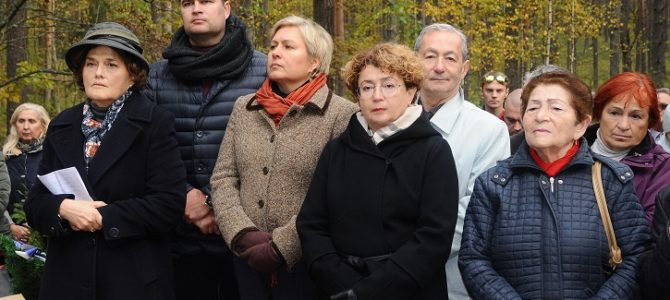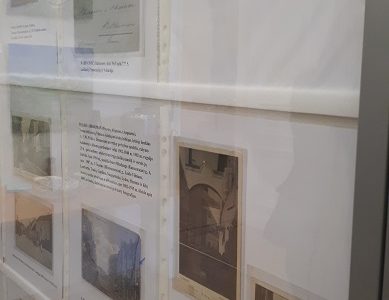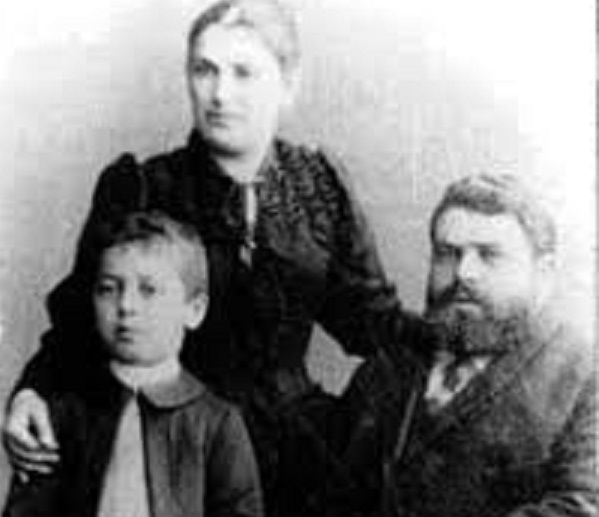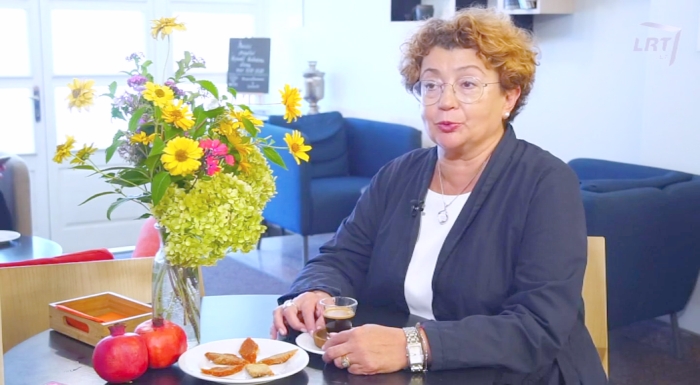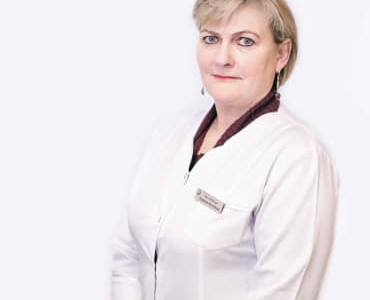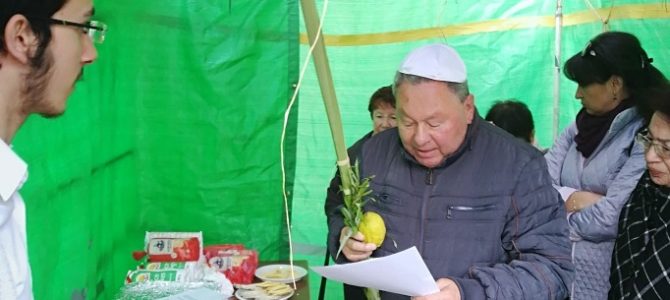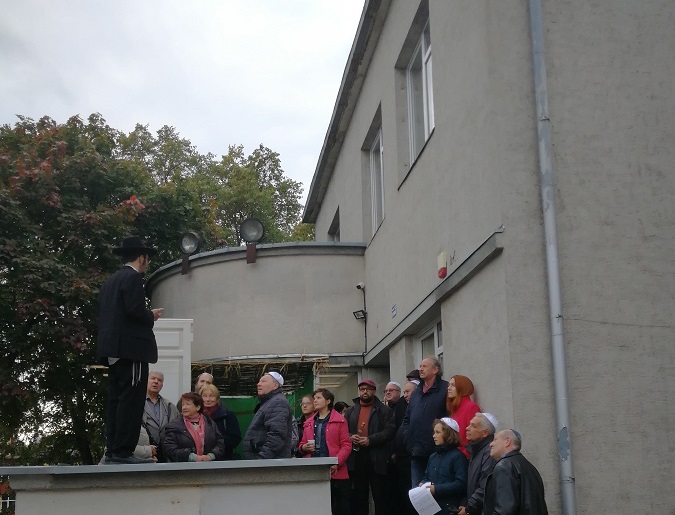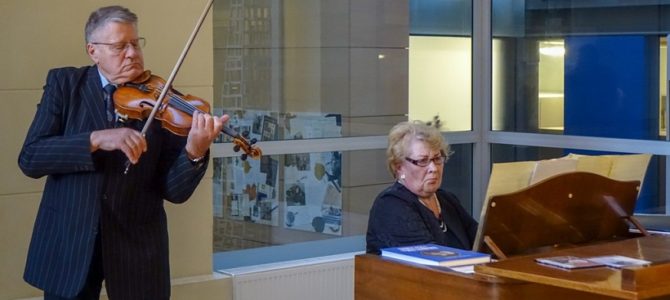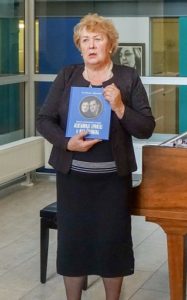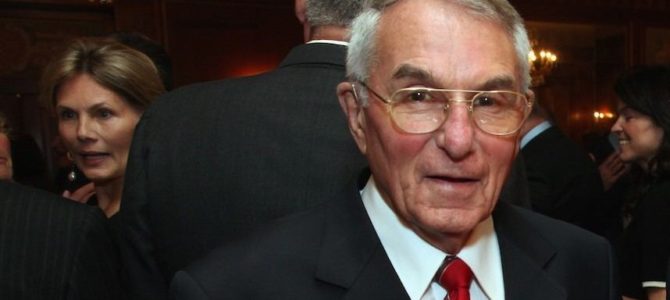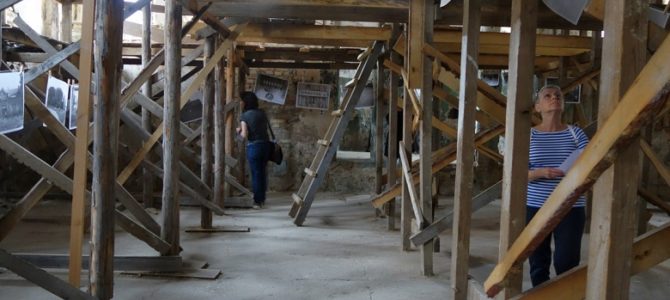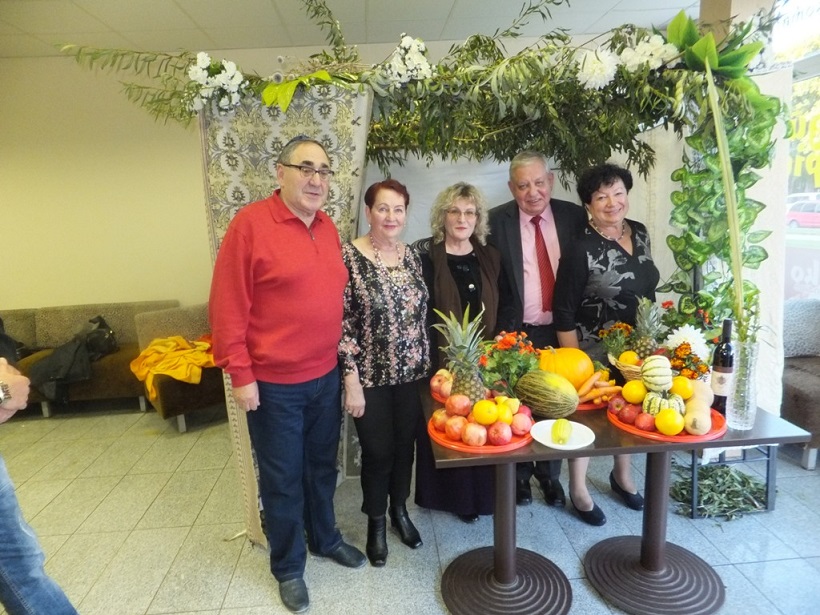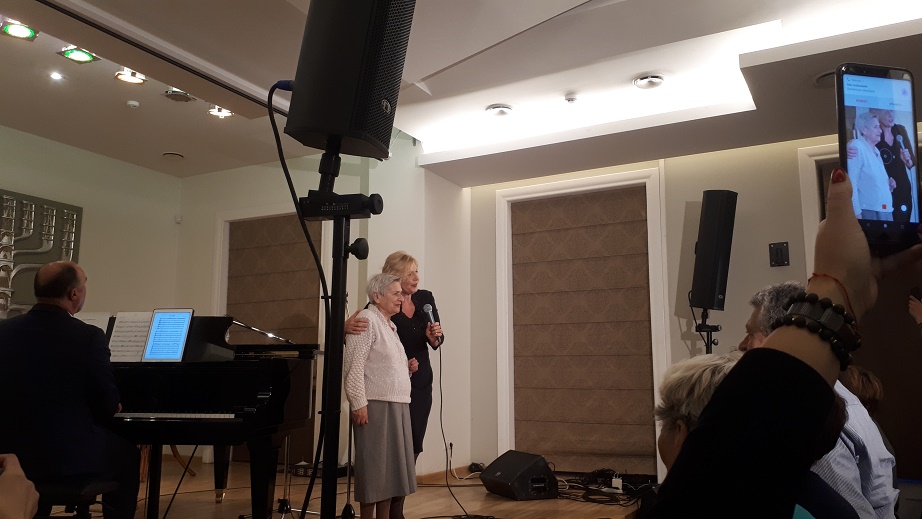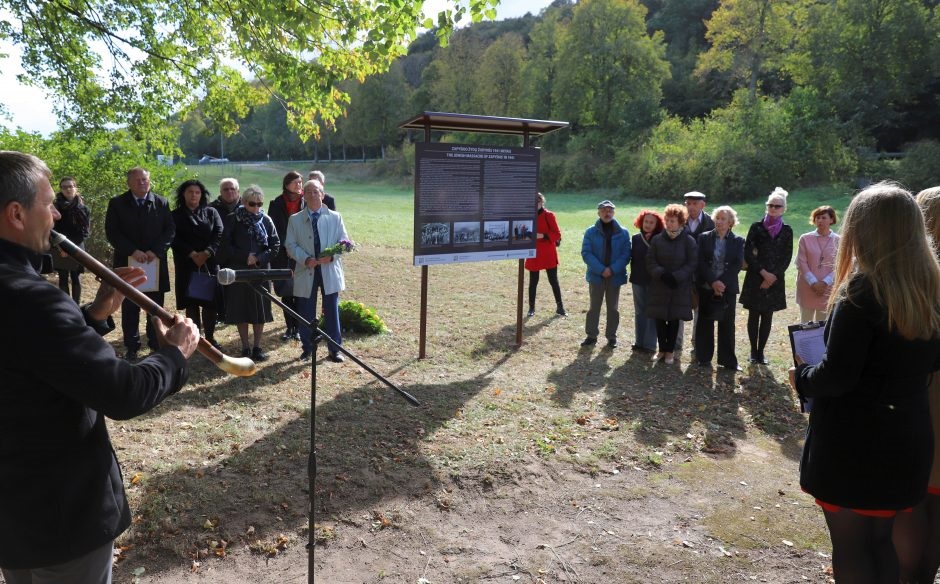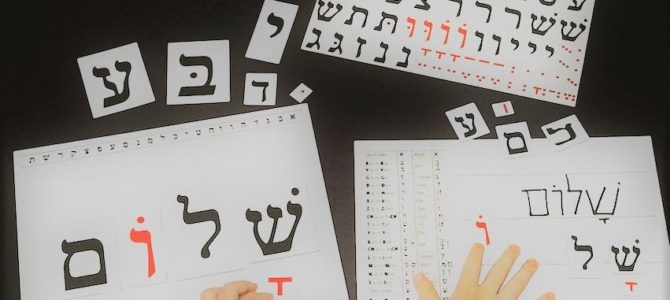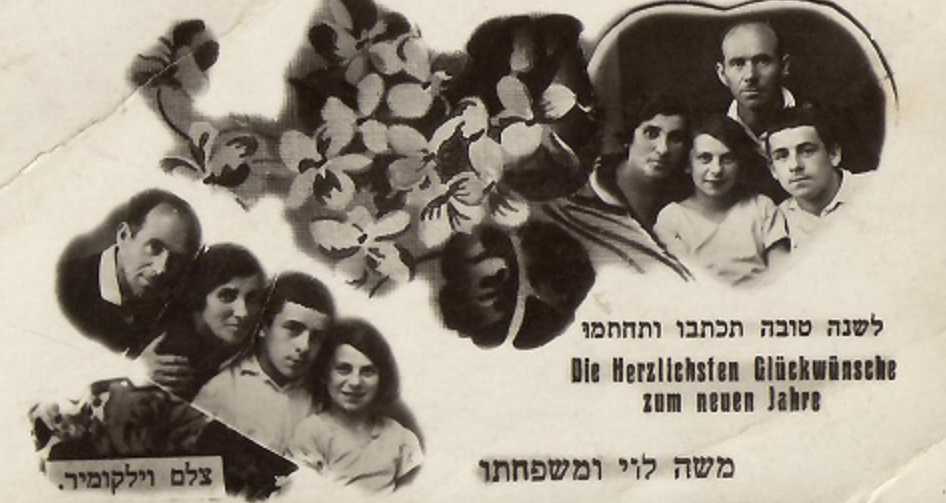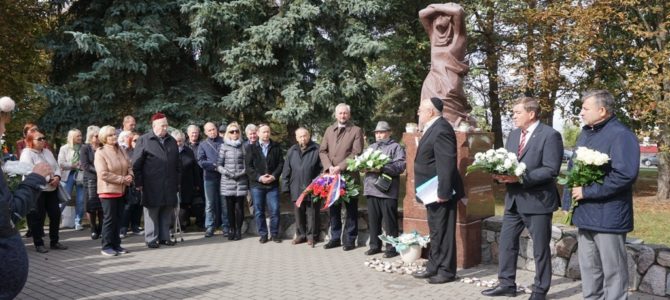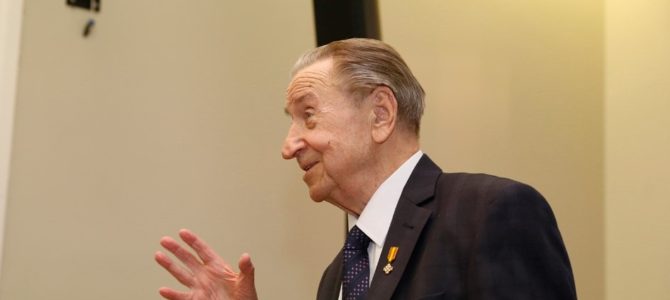
Maestro Eugejijus Paulauskas whose 90th birthday we celebrated one year ago in the Jashca Heifetz Hall at the Lithuanian Jewish Community has passed away. He shared his memories with us then and we want to share some of ours about him as well. Paulauskas was a violin virtuoso and a wonderful teacher. The Lithuanian Jewish Community sends sincere condolences to his family for their loss.
Born September 6, 1927, Paulauskas began his musical career more than 70 years ago. The talented musician went on to become one of Lithuania’s most notable violinists. He began studying music in Šiauliai and completed violin class under professor J. Targonskis at the Vilnius Conservatory in 1949. Last year at the birthday celebration Eugenijus Paulauskas said: “My teachers were very good, all of them were Jewish. After all, the best violinists in the world are Jews because this is a talented people. Chamber music is one of the subtlest, most profound and most intellectual forms of music and performance. I am convinced no other genre of music has so many pearls, so many masterpieces, as the quartet does. All the musical geniuses compose quartets. These compositions are made in such a way that as you perform them you forget the musical fabric, the architectonics of form, because you enter into the very depths of emotion from which emerge as if cleansed, enlightened. This sort of rebirth isn’t something just we musicians need. Everyone who comes to a concert needs it,” the master violinist said.
Paulauskas’s solo concert activity was greatly limited by his deep engagement with the Lithuanian Quartet and his pedagogical work, which have become an important part of his activities. He had innate talent, the characteristics of a solo virtuoso which was developed very early, passion to perform and passion for communicating with people of all ages and experience in his audience. Paulauskas’s rich solo repertoire was dominated by music from the Baroque, classical and romantic ages. His performance on the violin was exquisite and full of style, and his duets were subtle. His violin duets with piano met with great approval from audiences and critical acclaim.
Rest in peace, Eugenijus Paulauskas, beloved and respected by all.
